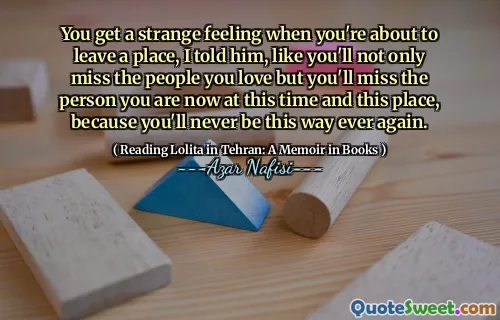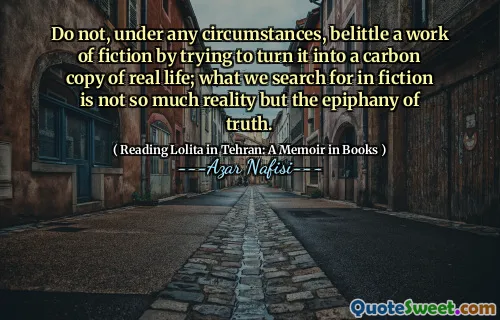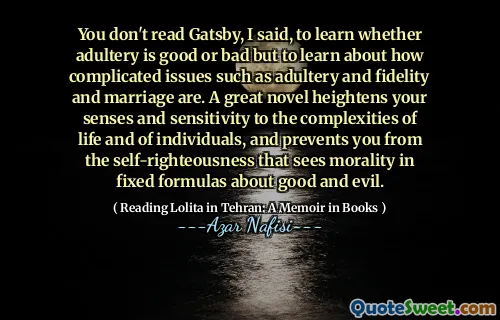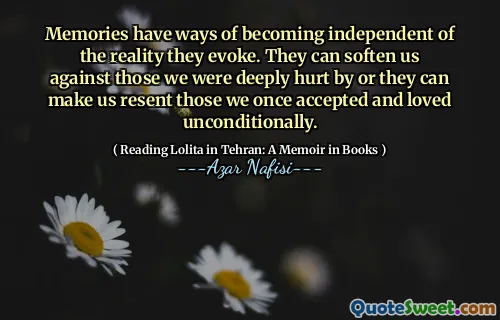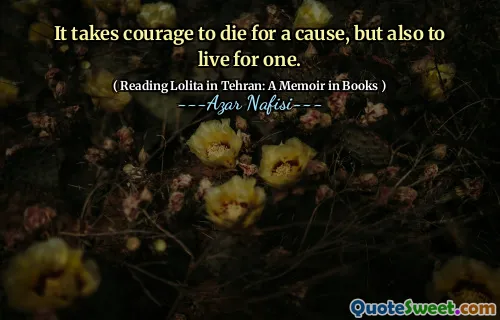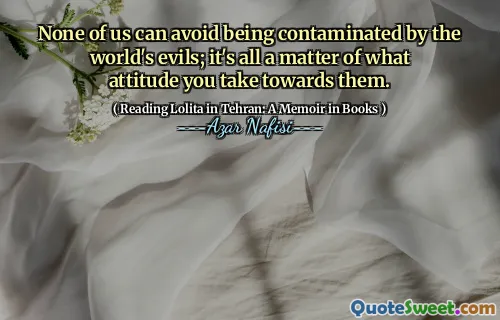
There was something, both in fiction and in his life {Nabokov}, that we instinctively related to and grasped, the possibility of a boundless freedom when all options are taken away.I could invent violin or be devoured by the void.
📖 Azar Nafisi
In "Reading Lolita in Tehran," Azar Nafisi reflects on the complex relationship between fiction and personal freedom, using Vladimir Nabokov's works to illustrate this theme. She notes how both Nabokov's life and his writing convey a sense of limitless potential, even amidst constraints. This connection resonates with readers who recognize that true freedom can be found when options seem limited, leading to a deeper appreciation for literary exploration.
Nafisi emphasizes the power of literature to unlock possibilities and impart resilience in the face of adversity. By engaging with Nabokov's thoughts on choice and creativity, she suggests that one can either create their own path—like inventing a violin—or succumb to the emptiness of despair. This duality captures the essence of the struggle for freedom through art and personal expression.
